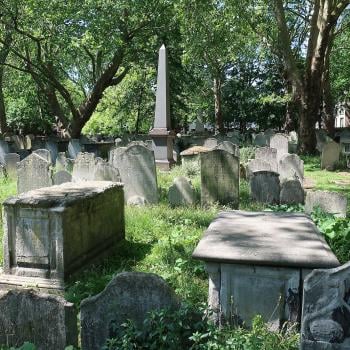As I write this I am sitting in the Beijing airport, en route to the city where I will meet my son for the first time. I am here with my older daughter whom my wife and I adopted twelve years ago; this will be the second time she witnesses the adoption of a sibling.
I am suspended between myriad emotions during this remarkable period. Most importantly, what I feel is a strong vocational stirring in this whole process: the sense that God has spoken to Sue and me, saying effectively that he needed us to respond with generous hearts even when we were not certain that another adoption was possible.
The stirring began, as it always does, with an emotional response. Fu Yuan's picture was in an adoption email that Sue receives regularly, and she did what you're not supposed to do with pictures: fall in love. She sent the picture to me and asked what I thought. My answer: I wish we could adopt him and all his friends. But we couldn't, I said, it's too expensive.
Fast forward, past the months when his picture kept appearing in her inbox, past the further talks we had about the impossibility of adopting again with no money, to the evening before his file was to be sent back to China, back to the orphanage slightly east of nowhere in particular, where he would probably exist till he aged out. The girls were in bed, we were both exhausted after a busy week, and we had the talk. Result: God demanded that we do this in spite of our feckless protestations.
A whirlwind of activity. Financial records. Birth and marriage certificates. Philosophy of parenting statement. Police and FBI clearances. Multiple visits with social worker an hour away. Home visit. More paperwork. Thirteen trips to the Massachusetts State House for state certification of documents. Care packages to this boy whom we'd never met, slowly building a nest within our hearts.
And then: waiting. Lots of it. Wondering what he was told, what he was thinking, what he was feeling. Wondering how this decision would affect our daughters, our beautiful young women, so fragile when we held each of them for the first time when they were just about a year old. Feeling stretched emotionally, spiritually—reaching out for the comforting presence of God, reassuring us not to let our hearts be troubled. "It is as if the Holy Spirit is tamping down my anxiety," I would find myself telling a colleague the day before we left. And it is true: this Holy Spirit has shown himself to be more insistent than the evil spirits that seek to stir up my anxiety and close me further in upon my introspective self.
Immersed in a world where there is meaning, value, purpose, and yes, love—that is our condition. God is creator of that world, of all things visible and invisible: the things we can measure, and the things that we actually build our lives on. Yes, a world of meaning: evident as surely as the nascent wonder in a child's imagination and the passionate drive for knowledge in the mind of the particle physicist.
How small that is with which we wrestle; what wrestles with us, how immense, wrote Rilke. How necessary it is that we live in a world where we might discern meaning, for only in such a world is love possible. Only in such a world is God possible. Even as a theologian I care rather little for our words about God, for they are small in the face of the necessary call to love. I would rather learn to love than learn to write about it. This experience, and those family-building acts of faith which preceded it, are gambles that there is more to the world than what is visible. Frankly, I can't imagine what the point would be to facing suffering with nobility, or caring for the poor, or sharing another's burdens, if all reality were reducible to the visible. No: the Lord of the visible and invisible is calling to us through the voice of our most authentic selves with the words "discover your real self. Then give it away." For whoever wouldsave his life will lose it; and whoever loses his life for my sake, he will save it, says the Lord.
12/2/2022 9:05:39 PM





